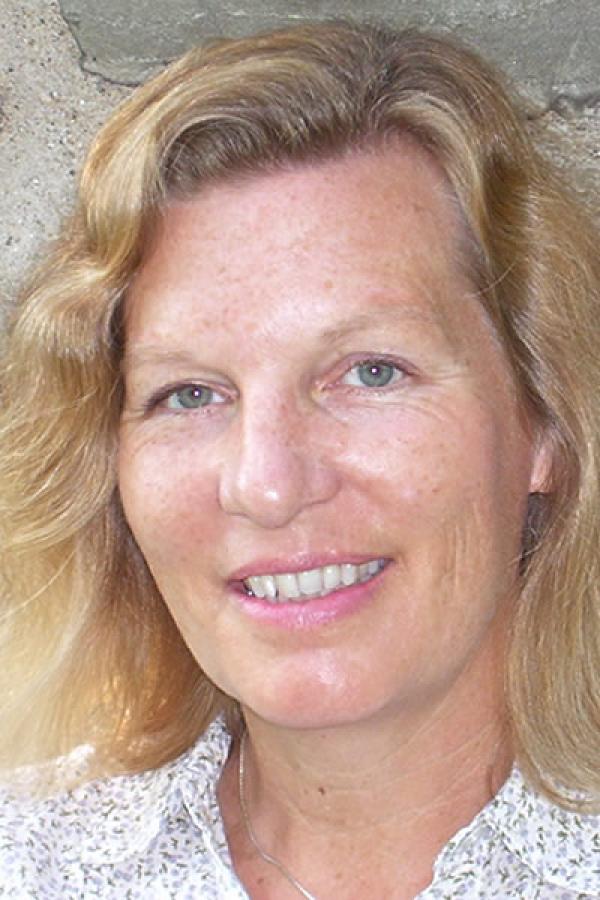Ann Williams

Photo by Liz Williams
Bio
Ann Joslin Williams is the author of The Woman in the Woods: Linked Stories (Eastern Washington University Press, 2007), which won the 2005 Spokane Prize. She earned her MFA from the Iowa Writers' Workshop. She is also the recipient of fellowships from Stanford University's Wallace Stegner Program and from the Vermont Studio Center. Her work has appeared in Storyquarterly, The Iowa Review, The Missouri Review, Ploughshares, The North American Review, The Chattahoochee Review, Willow Springs, and elsewhere. After ten years living in San Francisco, she recently returned to her home state to teach at The University of New Hampshire.
Author's Statement
Happiness. Wind in my sails. This is such a great honor. I’m absolutely thrilled to receive the NEA award. Money is nice and will alleviate fear of public service bills here in dark, cold New Hampshire where I have found myself once more. But best of all is the encouragement that I needed so dearly. I’ve been working on this novel for a long time. Perhaps now, I will find the courage to say, yes, it’s the best I can make it, and finally let it go. There is a next novel. I can see it now.
From the novel-in-progress Cascom Mountain Road
Tobin watched until the girl on the road was out of sight, then he turned and hunkered down again. A section of his mother's hair fell over the back of her seat. The frayed ends swung above his knees. He spread two fingers, making scissors, and slid them toward the ends. When his mother cleared her throat, he froze, and found her looking in the rearview mirror. The mirror cut out only her eyes, the bridge of her nose, and part of her forehead like a bandit's mask. Her eyes were fierce and dark, and he thought about ducking to the floor where she couldn't see him. Her head jerked so her mouth came visible in the mirror for a moment, then the eyes were there again, though turned back to the road. He pulled his scissor fingers back. The car struggled on the incline as she gunned it forward. Sand clouds followed them. It was hot. His mother wouldn't roll down the windows because of the dust, and now she was smoking, making his nostrils burn, and his scalp prickle. He felt woozy and lay down on the sticky seat.
"A foolish boy drank himself to death last night," his mother said. "They found him on the mountain." His mouth sprang full of bitter saliva and he pressed his fingertips over his lips to keep it in. The car bounced, churning over the ruts. He was supposed to tell if he was going to throw-up, but he didn't dare open his mouth.
"I heard some people talking at the market." She spoke as if she was reciting what she might say later to his father. "He was on the Clark Trail. He was young. Now he's dead, quick as that. Plumb dead." He heard the intake of smoke, the tiny tap-pop as her lips pinched, then let go of the filter. She blew out quick. "Exposure to the elements. The elements got him."
The elephants got him. He pictured huge, wrinkly gray elephants crashing through trees, then an elephant foot raised above the head of a small boy.
"There was a girl with him, but they hadn't found her yet," his mother added, and for a second he thought maybe it was the girl on the road, and maybe the elephants were after her, too, but his imaginings bumped away with the rutted road, and he knew it wasn't that girl, and there were no elephants on Cascom. If the motion and the smoke weren't making him feel awful, he might have told his mother about the element-elephants. Sometimes she liked things like that - words, switched around, made silly.
Then his mother turned, glanced at him. "Damn it," she said. "Not again." He gripped the edge of the seat as she jerked the car to the shoulder of the road. She was yelling, and he felt the warm liquid on his chin, and there was a sour smell. Then she was at the door and pulling him out by the collar and the back of his pants. "All over the seat," she snapped. "How many times?" She dragged him out of the car, let go of him. He sat on his knees in the gravel. His shirt front was covered.
"Damn it all," he heard her say. "You walk home," and then the doors slammed and there was the grind of the tires. He was sad, stricken, looking after the car. His father would be mad. He wasn't supposed to upset her. He was never supposed to vomit in the car, but the car always made him sick. A crow cawed twice, then flapped away above him. He felt like an object, like one of the things his mother left in a random places for no reason that he could understand - a tea kettle under the kitchen table; a mesh bag of his white socks, all rolled into tight balls and hung from a tree branch in the back yard, as you might suspend suet for birds; books stacked between plates in the dish cupboard. A pillowcase of his father's things - a comb, several paintbrushes, one LL Bean hiking boot, a compass, a photograph of his father holding up a photograph of Tobin as a baby - stashed in the barn behind the pig sty. But he was not a thing, and she put him here because he was sick in the car, so that was a reason, and it gave him a modicum of relief to find logic in her behavior, since more and more there seemed to be none.

